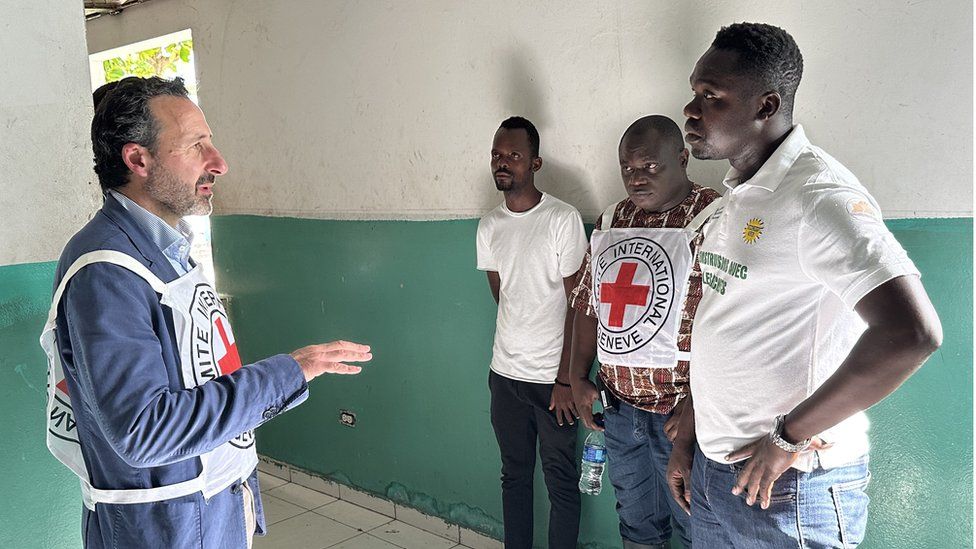-

-
-
Loading

Loading

The International Committee of the Red Cross (ICRC) is facing significant challenges in delivering humanitarian aid in Haiti due to the extreme level of armed violence in the country. According to ICRC Director-General Robert Mardini, the organization has had to engage with around 300 gangs to ensure aid reaches the people in need. Approximately 80% of the capital city, Port-au-Prince, is under gang control. As a result of the violence, many health facilities have ceased operations, and healthcare workers are frequently threatened. Mardini, speaking to the BBC following his two-day visit to Haiti, expressed his shock at the dire situation in the shanty towns, describing it as a "toxic and terrible combination" of adverse factors. He highlighted the constant fear experienced by the population due to endemic armed violence, with people anxiously anticipating the next clash or kidnapping. Consequently, access to essential services is severely limited, particularly within healthcare. Mardini recounted a meeting with a young doctor who was performing medical miracles with minimal tools due to the lack of resources. He emphasized that gang rivalries prevent people from freely moving across different areas of the capital, confining them to their respective neighborhoods. Mardini shared the story of a man who had to transport his pregnant wife to the hospital by pushing her in a wheelbarrow through flooded streets, then transferring her onto a motorbike before finally reaching a car for the remainder of the journey. To reach areas without state control and freely roaming armed groups, the ICRC engages in continuous dialogue with the gangs. However, Mardini explained that this task is overwhelming, and the ICRC is unable to have a dialogue with all of them. The organization's ability to help the Haitian people greatly depends on their acceptance and recognition on the ground. Any disruption in their dialogue with the gangs can hamper their progress, as the gangs often have a loose command structure and internal conflicts. In response to the growing needs in Haiti, the ICRC plans to increase its humanitarian efforts in 2024. This includes expanding training programs for emergency health staff and the country's ambulance service to improve access to emergency services for those most impacted by the violence. Additionally, the ICRC aims to provide more medical kits to hospitals for treating wounded patients. Mardini also appealed to the international community to increase aid to Haiti and help reverse its downward spiral, emphasizing the ethical and moral responsibility to support five million people reliant on humanitarian assistance.